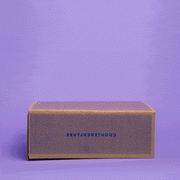More than 2,100 members of the UCOCARU cooperative union deliver their coffee cherries to the Buliza coffee washing station for processing. This style of centralized processing is common in East Africa and especially Rwanda, where farms are often less than one-quarter hectare. What is less common, is that the Buliza coffee washing station is privately owned, working in partnership with the union each season to process its members coffee cherry for export.
This unique arrangement is part of a government program to explore how cooperatives and private washing stations could better support each other–a novel idea as these two entities are typically direct competitors each harvest season throughout the country. Essentially, this agreement allows the union to avoid large financial risk from building and operating a washing station which can lead to high debt and ultimately lower return for its members. On the other side, private washing stations face uncertainty each season as they compete with other washing stations for farmers’ cherry deliveries. Working together, Buliza and UCOCARU can negotiate a fair price for the cooperative’s coffee, and the washing station can count on a known quantity of cherry deliveries which help them better forecast their financing and operational costs.
We were connected with the UCOCARU union and Buliza washing station thanks to our friends at Ikawa House, Laetitia Mukandahiro and Uzziel Habimana. We’ve worked with Laetitia and Uzziel for more than 15 years in various capacities with other exporters, and it was a no-brainer for us to support them when they started their own exporting business in late 2019. Ikawa House primarily focuses on quality control and market access for both private washing stations and cooperatives across Rwanda. Connecting buyers and suppliers is a passion for the two, as well as training up and coming Rwandan coffee professionals on cupping, roasting, and brewing techniques in the quiet months after the harvest has concluded.
Though some people equate dark roasts with lower quality, we’ve found this style can create an approachable, complex cup when the coffee quality is high. As with much of the coffee produced in Rwanda, farms in the Rulindo district sit at high elevation. This tends to create more dense coffees that can stand up to the high temperatures of darker roasting styles. Counter Culture has worked in Rwanda since the dawn of the specialty coffee industry there, and we hope that sharing a different take on these flavor profiles will encourage drinkers to seek out other coffees from a country near and dear to us.
![]()
![]()
![]()
![]()
![]()
![]()
![]()
![]()











